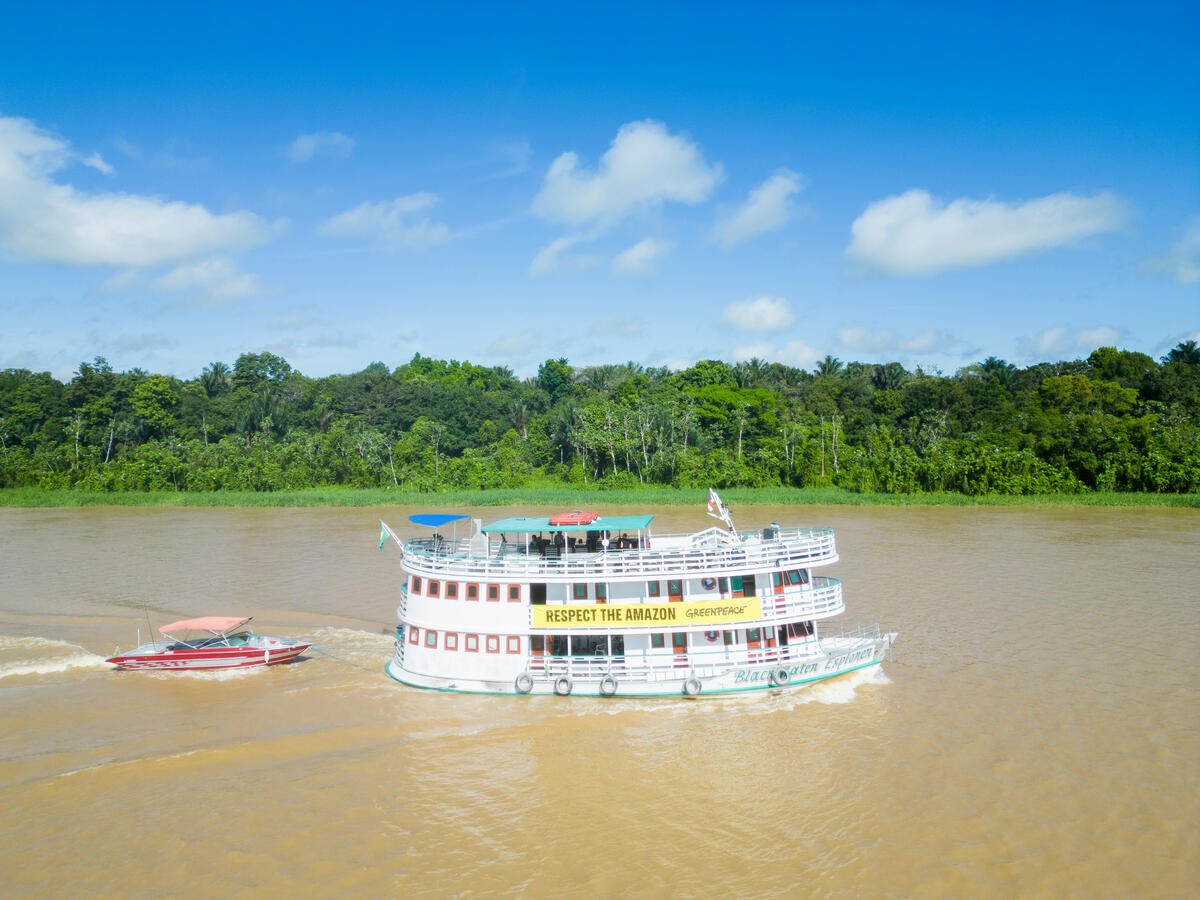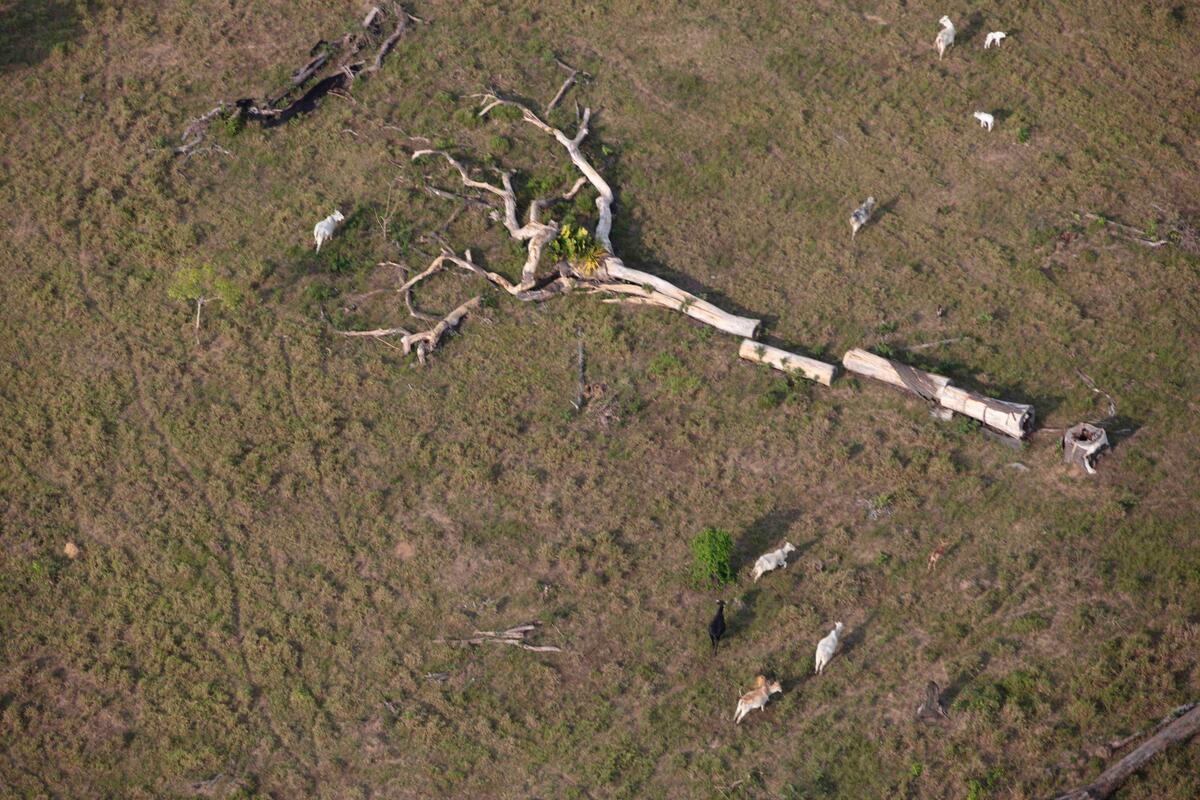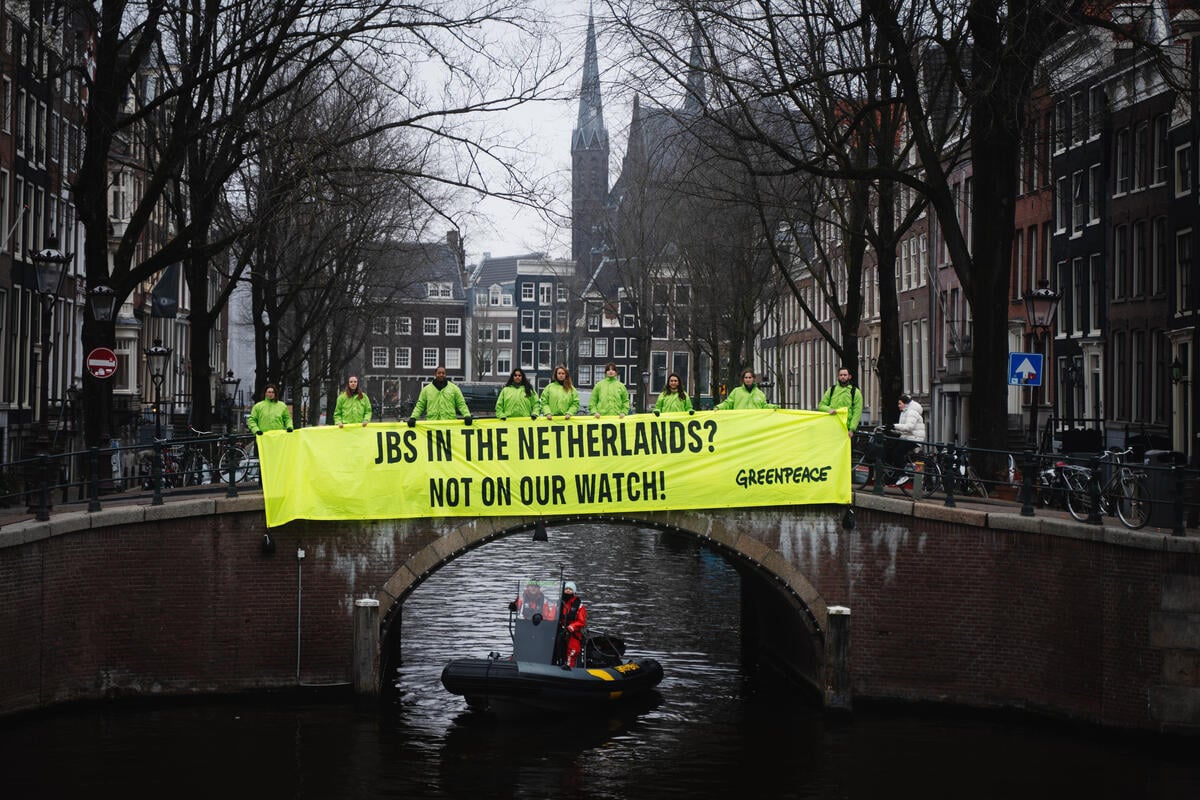Brazzaville, Republic of the Congo – The Three Basins Summit marked an attempt to pioneer an alternative model of governance amongst Global South countries, in pursuit of preserving biodiversity ecosystems and tropical forests. However, if its Declaration signifies a step forward describing this alternative governance path, it fails to commit to any concrete actions for the protection and restoration of nature, nor the rights and livelihoods of Indigenous Peoples and traditional communities.[1]
Instead, the Brazzaville summit touted controversial carbon markets as the main financial mechanism for protecting and restoring biodiversity ecosystems and tropical forests – but carbon markets will only reinforce the commodification of nature and human rights violations if they become the primary such mechanism.
Romulo Batista, Senior Campaigner at Greenpeace Brazil, said:
“Indigenous Peoples and local communities have been protecting critical biodiversity ecosystems for generations. When the rights to their lands are guaranteed, forest destruction rates are notably reduced.[2] For a just, clean and sustainable future, we must move beyond an extractive and destructive economic model to one where Indigenous Peoples and local communities are not only invited to be present at multilateral fora like the Three Basins Summit, but where their knowledge and leadership are key components in decision-making.”
Irène Wabiwa, International Project Manager for the Congo Basin at Greenpeace Africa, said:
“Greenpeace Africa regrets that carbon markets were praised as a solution to reduce emissions and restore nature. In fact, carbon markets merely provide a lifeline for high-polluting corporations to maintain their harmful practices, profits, and influence over climate and biodiversity policy. The key to real climate solutions and the protection of biodiversity lies in the promotion and implementation of non-market solutions that are State-led, regulated, accessible and predictable, and that incorporate the rights and role of Indigenous Peoples and local communities. These include progressive taxation, international cooperation, reparation and the ending of perverse subsidies.”
Arie Rompas, Forest Campaign Team Leader in Greenpeace Indonesia, said:
“We need action beyond talk: to protect and restore forests, we need to protect the rights of Indigenous Peoples and other frontline communities, through the support of rights-based approaches and the funding of initiatives such as community-led forest management.[3] Greenpeace Indonesia missed the participation of the Indonesian government and regretted that the voices and role of Indigenous Peoples and other frontline communities were not sufficiently heard and recognised during the summit when establishing a roadmap to protect and restore the biodiversity ecosystems of the three forest basins.”
Victorine Che Thoener, Senior Portfolio Manager at Greenpeace International and head of the delegation of Greenpeace in Brazzaville, said:
“There is so much untapped potential for greater South-South collaboration in shaping and addressing the global climate and biodiversity agenda. The three basin countries must take political leadership, ensuring this initiative grows stronger and, beyond the Summit, that concrete agreements are reached and implemented on the ground. In addition, political leaders must work together with Civil Society Organisations, social movements, Indigenous Peoples and local communities as well as women and youth. In this endeavour, innovative finance mechanisms should focus on non-market approaches, such as funding and support for community-led forest management, and international cooperation.”
Effective climate action necessitates real emissions reduction, and this won’t happen if loopholes like carbon offsets continue to exist and be promoted. Greenpeace insists on prioritising Indigenous Peoples’ and other frontline communities’ rights, especially land rights, and utilising non-market approaches for preserving and restoring the three basins’ biodiversity ecosystems.
Despite an ambitious initiative, Greenpeace takes note of the Three Basins Summit’s limited tangible outcomes in realising effective actions to protect tropical forests and the livelihoods of the 1.5 billion Indigenous Peoples and traditional communities residing in these regions. We anticipate the establishment of a committee that will continue to address the outcomes of the Summit and urge this committee to include a wide range of representatives from different groups and interests, ensuring that the decision-making process takes into account the diverse needs and concerns of all stakeholders.
END
Notes:
[1] Three Basins Summit Declaration
[2] FAO and FILAC. 2021. Forest Governance by Indigenous and Tribal People. An Opportunity for Climate Action in Latin America and the Caribbean. Santiago.
[3] A rights-based approach is a framework that underscores the importance of public engagement, information accessibility, and access to justice in shaping climate and biodiversity decisions. A rights-based approach includes the recognition of the land rights on Indigenous Peoples and local communities, as well as their role in protecting and restoring biodiversity ecosystems.
Contacts:
Victorine Che Thoener, Senior Portfolio Manager, Greenpeace International, [email protected]
Melissa Hamdi, Food and Forest Campaign, Greenpeace International, [email protected]
Raphael Mavambu, Communications and Media, Greenpeace Africa, [email protected]



